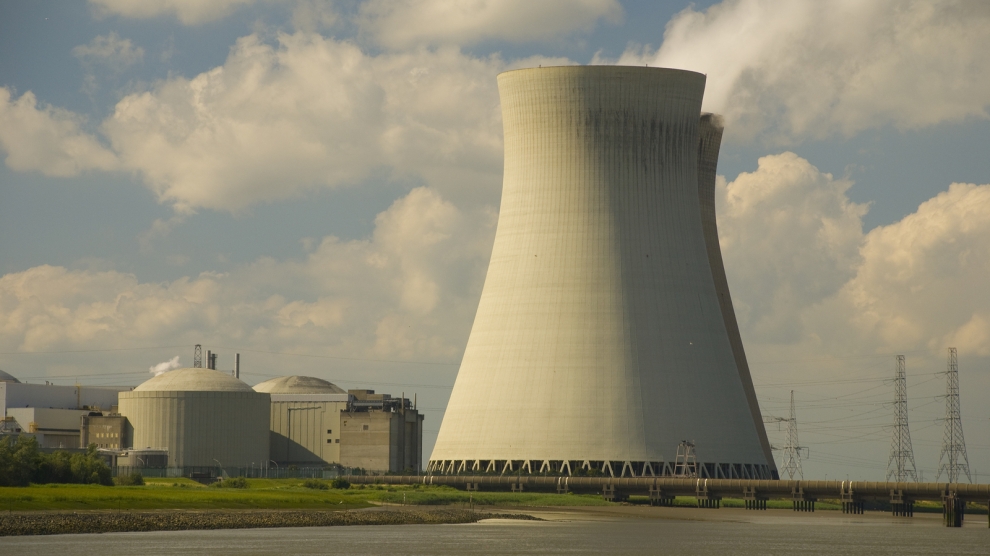Estonia, Latvia and Lithuania are joining forces to oppose energy imports from a Belarusian nuclear power plant (NPP) Lithuania has declared a national security threat.
The governments of the three Baltic nations have announced that they will sign a declaration of intent to oppose electricity purchases from Russian-built NPP at Astravets near the Lithuanian border.
“We are pleased to be moving closer to a common position,” Lithuania’s prime minister Saulius Skvernelis told reporters, adding that the three Baltic nations and the European Commission will work on finding “an appropriate mechanism controlling the origin of electricity entering our networks from third countries”.
“Seeing the atmosphere and constructiveness as well as the European Commission’s involvement, I believe we are going to have a really good compromise,” LRT quoted Lithunia’s energy minister Zygimantas Vaičiūnas as saying.
The joint declaration comes after the Latvian government last August announced that it would move electricity trade to the country’s border if Lithuania decides to halt Belarusian imports.
Vilnius has long criticised the Belarusian NPP project, which includes the construction of two nuclear reactors by 2020 and two additional reactors by 2025.
The Lithuanian government, which is convinced that Belarus is not complying with safety and environmental standards, has repeatedly sought assistance from the European Commission, has held emergency drills to prepare for any event and has purchased four million iodine pills to be distributed to its citizens.
In 2017, the Seimas, Lithuania’s parliament, passed a resolution deeming the Astravets plant a national, environmental and public health threat. In response, Belarus has repeatedly denied that the plant presents any threat. The plant has passed EU stress tests.
European and international experts are due to pay a visit to the Belarusian NPP in March. Mr Vaičiūnas insisted that the nuclear plant should not go online until all stress test recommendations are implemented by the Belarusian authorities.
Lithuania’s public broadcaster has reported that the three Baltic states are due to synchronise their power grid with the rest of Europe in the next five years and withdraw from the so-called BRELL network, an energy transmission framework of the three Baltic countries, Belarus and Russia.
The Astravets plant is being constructed by Russian firms contracted by Rosatom, the Russian state nuclear energy company. Moscow is also partly financing the nuclear plant – with cost estimates ranging as high as 22 billion US dollars.
Belarus hopes that the plant will be operational later this year.






[…] three Baltic states say they will not import electricity from a controversial Belarusian nuclear power station just 12km from the Lithuanian […]
[…] Estonia, Latvia and Lithuania oppose energy imports from a Belarusian nuclear power […]
[…] With the nuclear power plant (NPP) now producing electricity, Lithuania’s objective has shifted to keeping electricity from the plant out of Baltic grids. […]